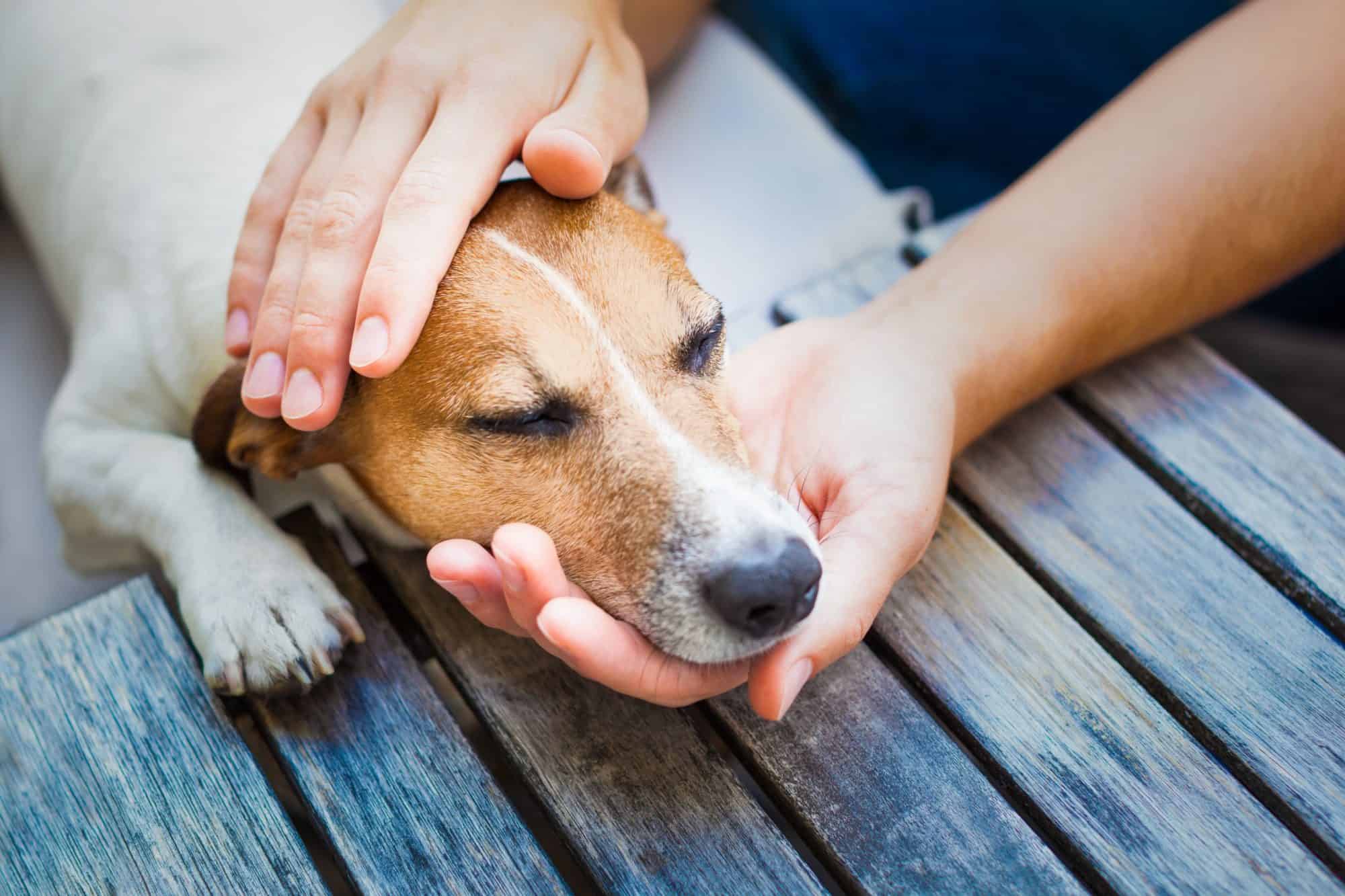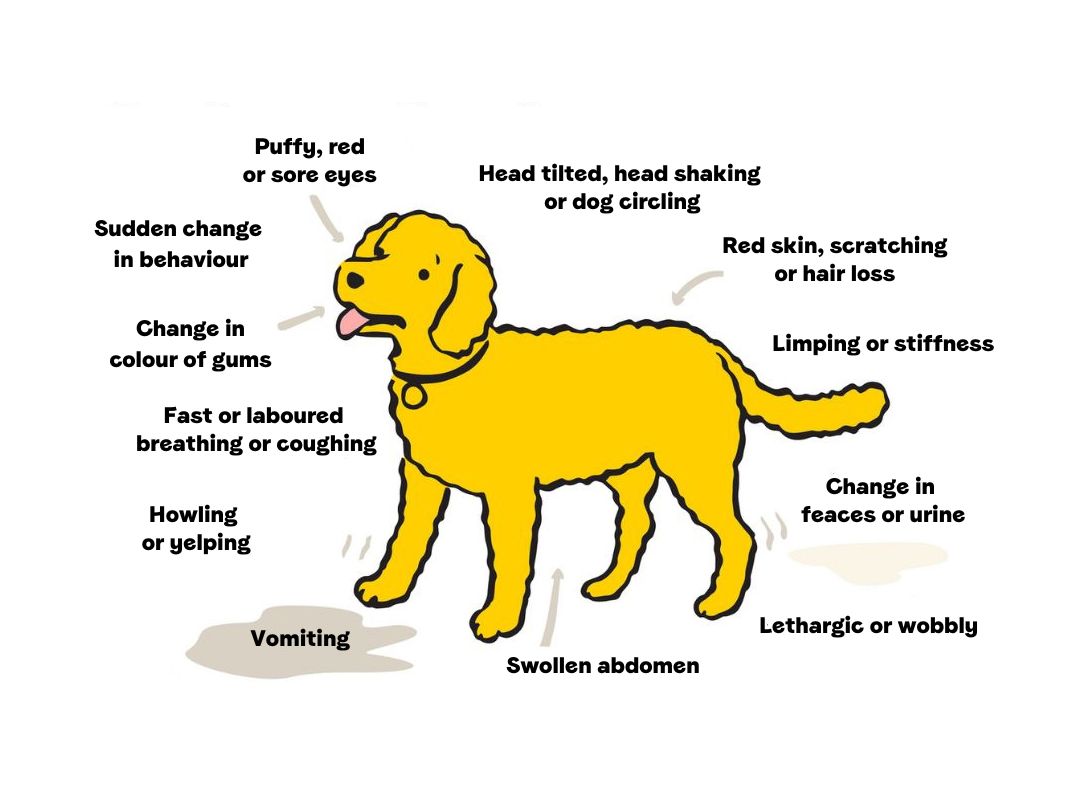Common Signs of Illness in Pets
As a pet owner, it’s important to be vigilant about your pet’s health and well-being. Animals can’t always express discomfort or pain the way humans do, so understanding the common signs of illness is essential. Recognizing these signs early can help prevent more severe health issues and ensure your pet gets the care it needs. Below are some common symptoms to look out for in your pets.
Changes in Appetite or Drinking Habits
A sudden change in your pet’s eating or drinking habits can be a sign of illness. This can include:
- Loss of appetite: Your pet may stop eating or show disinterest in their food, which could indicate dental problems, gastrointestinal issues, or other serious health concerns.
- Increased or decreased drinking: Excessive thirst (polydipsia) or a noticeable decrease in water consumption may signal conditions like kidney disease, diabetes, or urinary tract infections.
If you notice any sudden changes in your pet’s food or water intake, it’s essential to consult with a veterinarian.
Lethargy or Unusual Behavior
When pets feel unwell, they often become less active or behave unusually. Signs of lethargy include:
- Lack of energy: If your pet suddenly becomes more sedentary or seems excessively tired, this could be a sign of infection, pain, or an underlying health issue.
- Aggression or irritability: Some pets may display unusual aggression or irritability when they’re in discomfort or pain. Conversely, some pets may become more withdrawn and seek solitude when unwell.
If your pet is acting out of character, it’s important to observe their behavior closely and take them to the vet if the signs persist.
Changes in Coat Condition or Skin Issues
Your pet’s coat and skin can reveal a lot about their overall health. Watch for:
- Excessive shedding or patchy fur: Sudden or excessive shedding may point to stress, allergies, or skin conditions like dermatitis.
- Dry, flaky, or inflamed skin: Skin irritations, including redness, swelling, or sores, can indicate infections, allergies, or flea infestations.
- Hair loss: Bald spots can be a sign of a fungal infection, hormonal imbalance, or other skin-related issues.
Paying attention to changes in your pet’s coat can provide vital clues about their health.

Vomiting or Diarrhea
Frequent vomiting or diarrhea is one of the most noticeable signs that something is wrong with your pet. Causes may include:
- Infections or parasites: Bacterial or viral infections, as well as parasites like worms, can lead to gastrointestinal upset.
- Dietary indiscretion: Pets may ingest something they shouldn’t, such as spoiled food or foreign objects, leading to digestive issues.
- Chronic conditions: Persistent vomiting or diarrhea could indicate underlying conditions like pancreatitis, gastrointestinal diseases, or liver problems.
If vomiting or diarrhea persists for more than 24 hours, or if it’s accompanied by other symptoms like lethargy, a vet visit is necessary.
Coughing, Sneezing, or Breathing Difficulties
Respiratory issues can point to a variety of conditions, from mild to severe. Watch for:
- Coughing or sneezing: These could be symptoms of respiratory infections, allergies, or heart disease.
- Labored breathing or wheezing: Difficulty breathing, rapid breathing, or shallow breaths can indicate serious conditions such as asthma, pneumonia, or heart failure.
If you notice persistent coughing, wheezing, or labored breathing, a veterinarian should evaluate your pet as soon as possible.
Changes in Urination or Defecation
Changes in your pet’s bathroom habits can be a sign of an underlying medical issue. Look out for:
- Frequent urination or accidents: This may be a sign of urinary tract infections (UTI), diabetes, or kidney disease.
- Straining or difficulty urinating or defecating: Pets may strain to urinate or defecate, which can be due to blockages, constipation, or urinary issues.
- Blood in urine or stool: This is a red flag and may indicate infections, internal bleeding, or other serious conditions that require immediate medical attention.
If you notice any abnormalities in your pet’s bathroom habits, it’s crucial to take them to the vet for proper diagnosis.

Weight Loss or Difficulty Gaining Weight
Sudden weight loss or an inability to maintain a healthy weight can signal various medical problems. Possible causes include:
- Thyroid issues: Both hyperthyroidism and hypothyroidism can cause weight changes in pets.
- Gastrointestinal diseases: Conditions affecting digestion and nutrient absorption may lead to weight loss.
- Cancer or chronic illness: Unexplained weight loss can sometimes indicate a serious underlying condition, such as cancer or organ disease.
If your pet is losing weight despite normal food intake, or if they appear excessively thin, consult a veterinarian.
Bad Breath or Drooling
Persistent bad breath or excessive drooling can indicate oral health problems or systemic issues. These might include:
- Dental disease: Gum disease, tooth decay, or abscesses can cause foul-smelling breath and drooling.
- Infections or toxins: Bad breath can sometimes be a sign of internal infections, kidney disease, or poisoning.
Regular oral hygiene, along with a visit to the vet for professional cleaning, can help prevent dental problems and associated symptoms.
Conclusion
Being aware of the common signs of illness in your pets is crucial for early detection and treatment. Regular check-ups, a healthy diet, and proper care can help prevent many of these health issues. If you notice any of these symptoms in your pet, it’s essential to consult with a veterinarian as soon as possible to ensure the best care for your beloved companion.
More posts you might be interested in:

